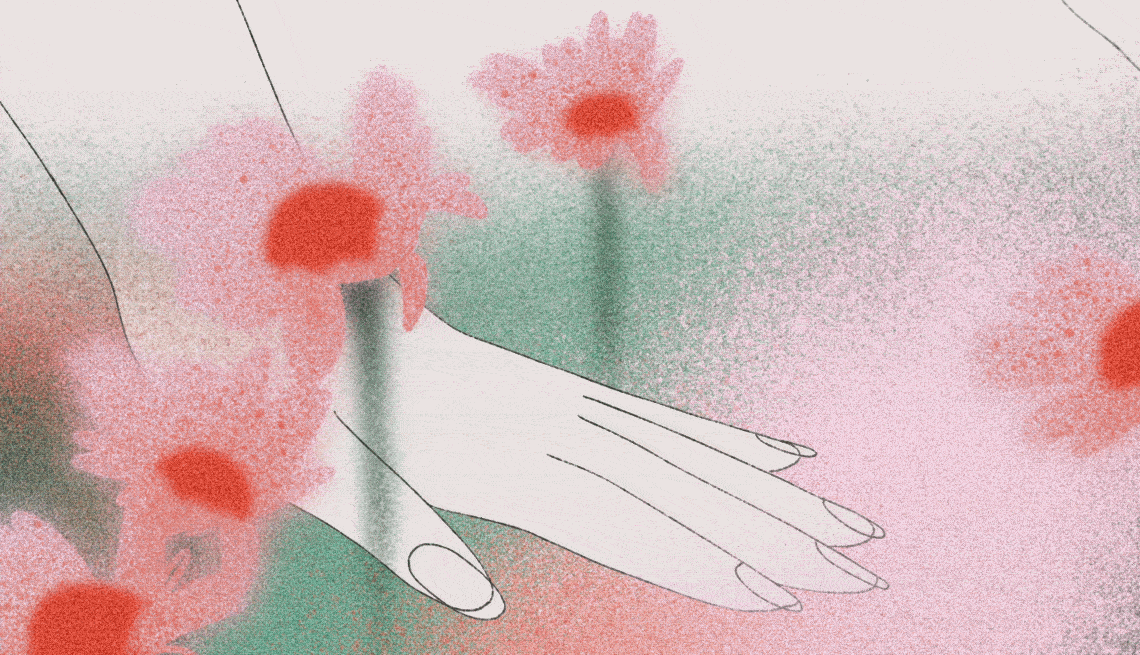AARP Hearing Center


For centuries, social norms in our country dictated that it was impolite, abnormal even, to talk about things that are uncomfortable; previous generations were urged to manage feelings on their own — and made to feel that, if they struggled, it must be because of their own shortcomings. Our culture has come a long way — but it’s understandable if, after losing someone you love, some part of you, even unconsciously, holds on to those notions.
“We live in a fairly mourning-avoidant, emotion-phobic culture that has fairly short social norms,” says Alan Wolfelt, Ph.D., an author, grief counselor and death educator at the Center for Loss & Life Transition. “People who would benefit from support often become their potential own worst enemy by not understanding the value of reaching out and seeking the support that they need and deserve.”
And therapy — be it individual psychotherapy, support groups, peer groups — can be particularly beneficial for spousal caregivers who’ve lost their partner.
“The paradox of losing a spouse is that you’ve lost the person you’d normally turn to for support in a crisis,” explains author Dale G. Larson, Ph.D., a professor in the Department of Counseling Psychology at Santa Clara University. “We have so many feelings in grief, and a counselor, support group, or even online experience can normalize your feelings for you, so you’re not beating yourself up about the ‘what ifs’ or feeling as totally isolated.” Bereavement outcomes, Larson says, are “very positively related with talking about the experiences we have.”
“Grief is a horribly lonely experience,” says Lauren Rhodewalt, a medical oncology social worker at Perelman School of Medicine at the Hospital of the University of Pennsylvania. “Just knowing that you’re not alone, that you’re having natural responses to things, is incredibly helpful,” Rhodewalt says.
Grief changes us, Larson says. “Especially when you’re a spousal caregiver and your life becomes so extremely different,” he notes. “We know that grief counseling works. A lot of us are tough individualists who don’t want to rely on others, but we have to reframe that thinking and see the process of mourning as sharing our human condition with others, and receiving the care we need. Spousal caregivers need to focus on themselves, so that they can go on in a healthy fashion and have the rich life they deserve.”
Here, Rhodewalt, Larson, Wolfelt and other experts share what spousal caregivers facing a loss need to know about getting help to navigate a path forward when the future feels impossible to imagine.
Therapy won’t rush you
Gone is the old thinking that grief is linear and that there are discrete “stages” one needs to work through to “resolve” their loss. Instead, as Larson explains, we now know that most people oscillate between reflecting on their loss and moving in the direction of restoration — toward building a new life, with their grief. “Processing things takes time, and it takes focus. You can’t just do it on the side,” Larson says.































































More From AARP
What to Post (and Not Post) on Social Media When You’re Grieving
Many announce a death or want to comfort friends online, but can a post be too personal?25 Ways to Bind up Grief’s Wounds
How to heal when the deep shadows of loss pierce your heartWhen Grief Lingers and Robs Life of Meaning, It’s Time to Get Help
There’s no time limit on grieving, but disabling symptoms are red flags of prolonged grief disorder
Recommended for You